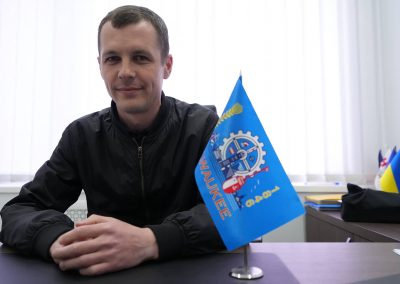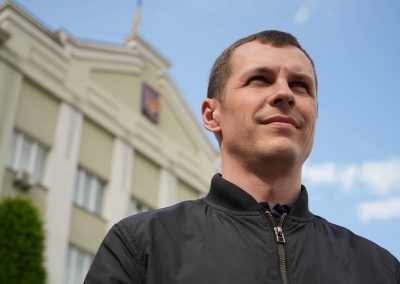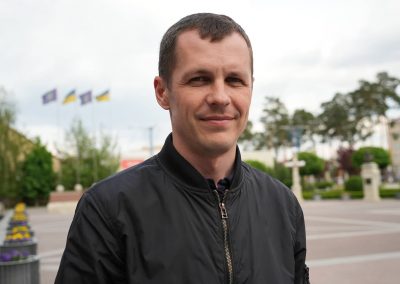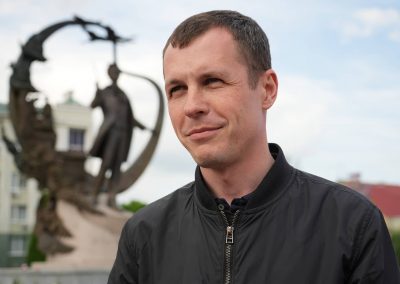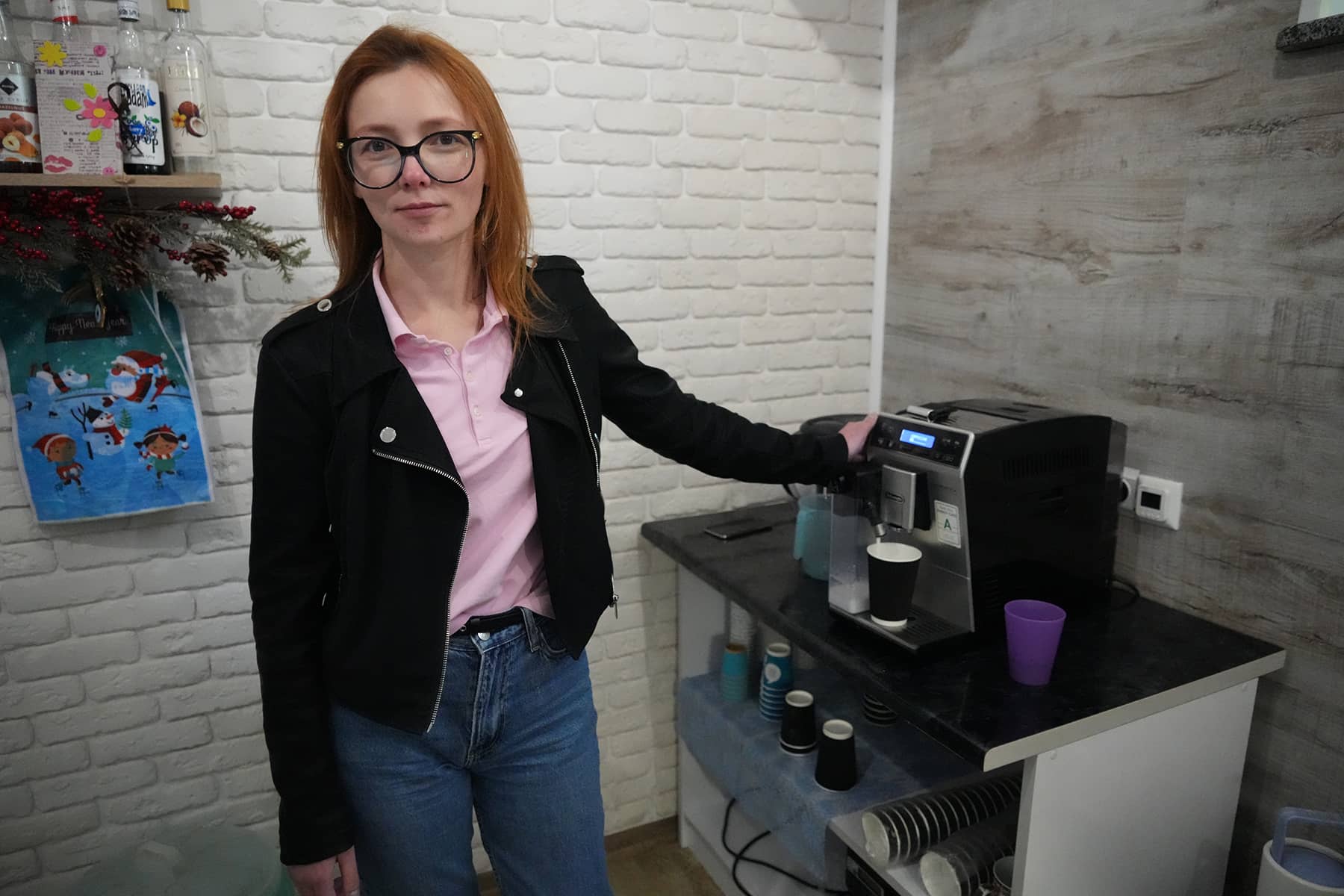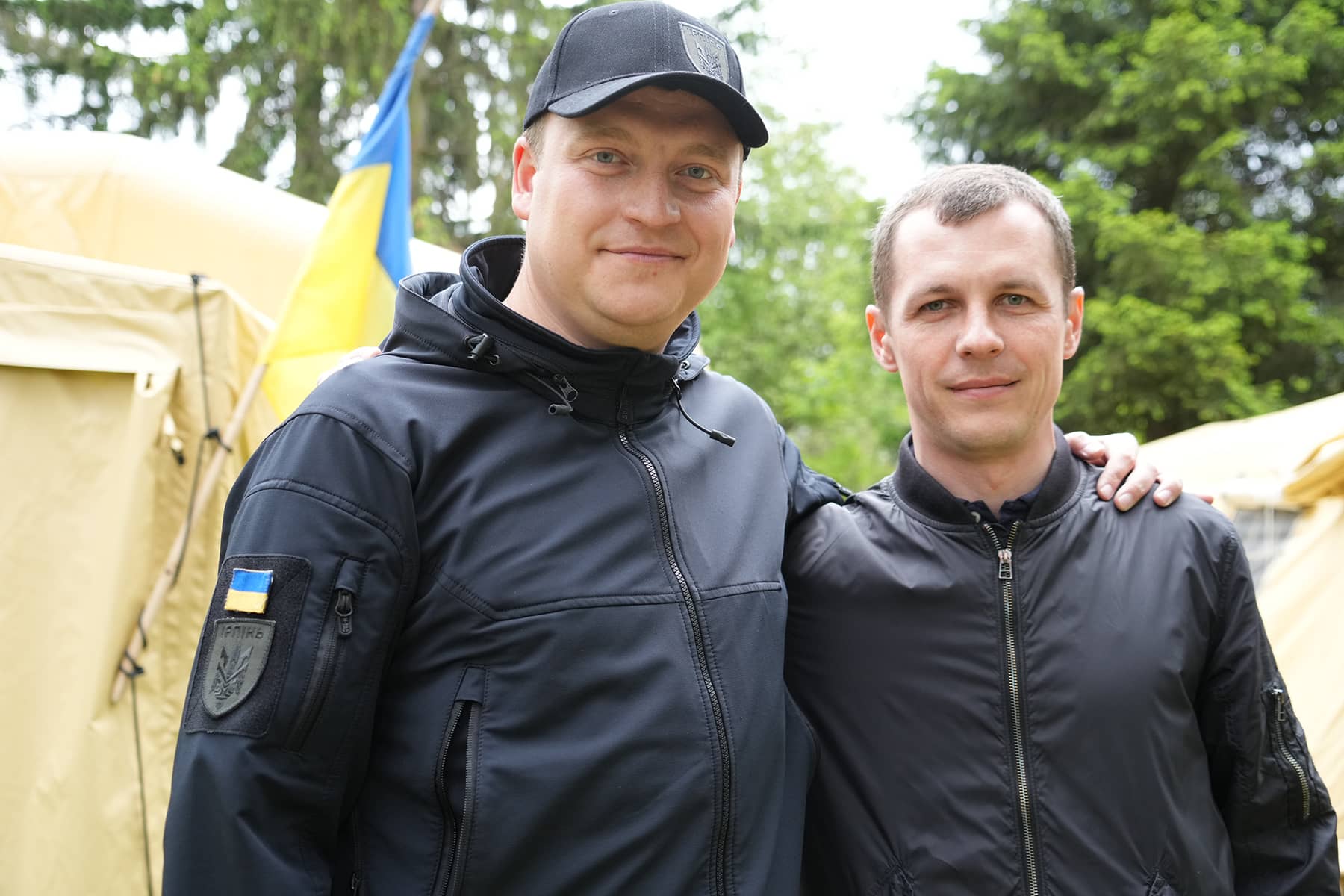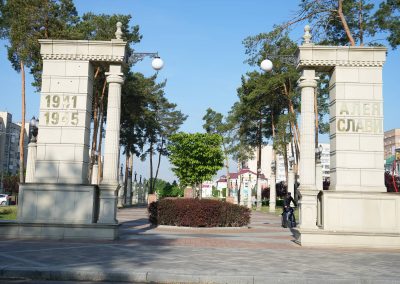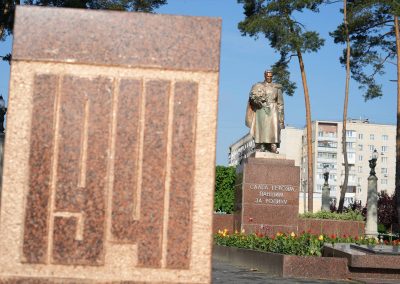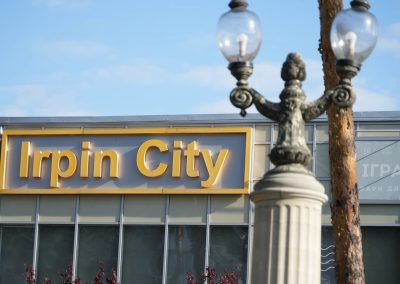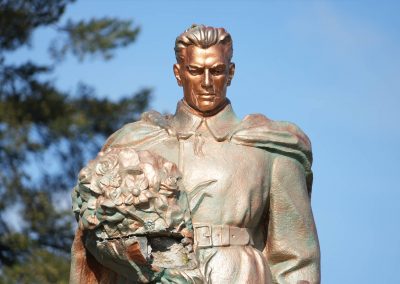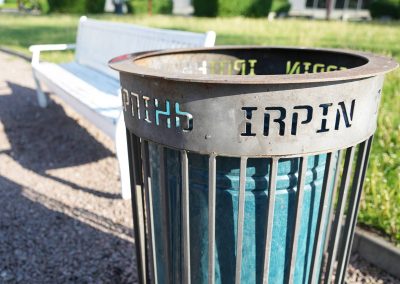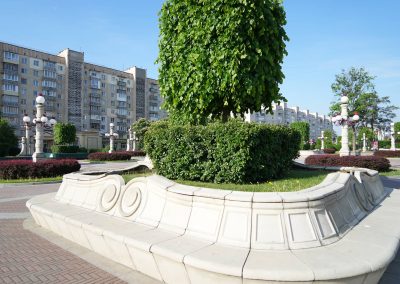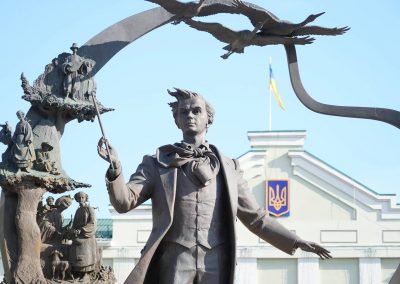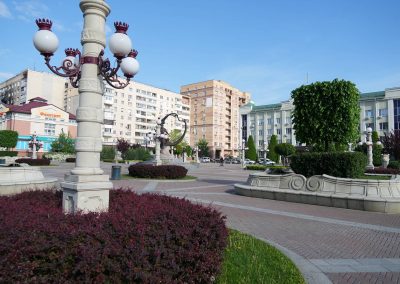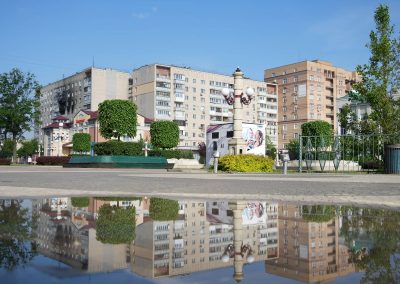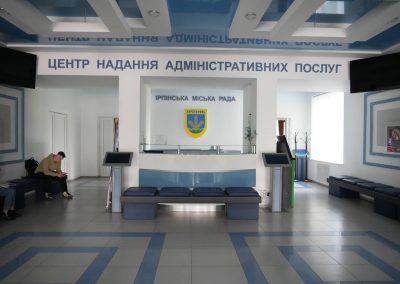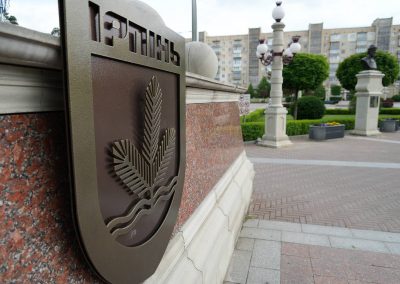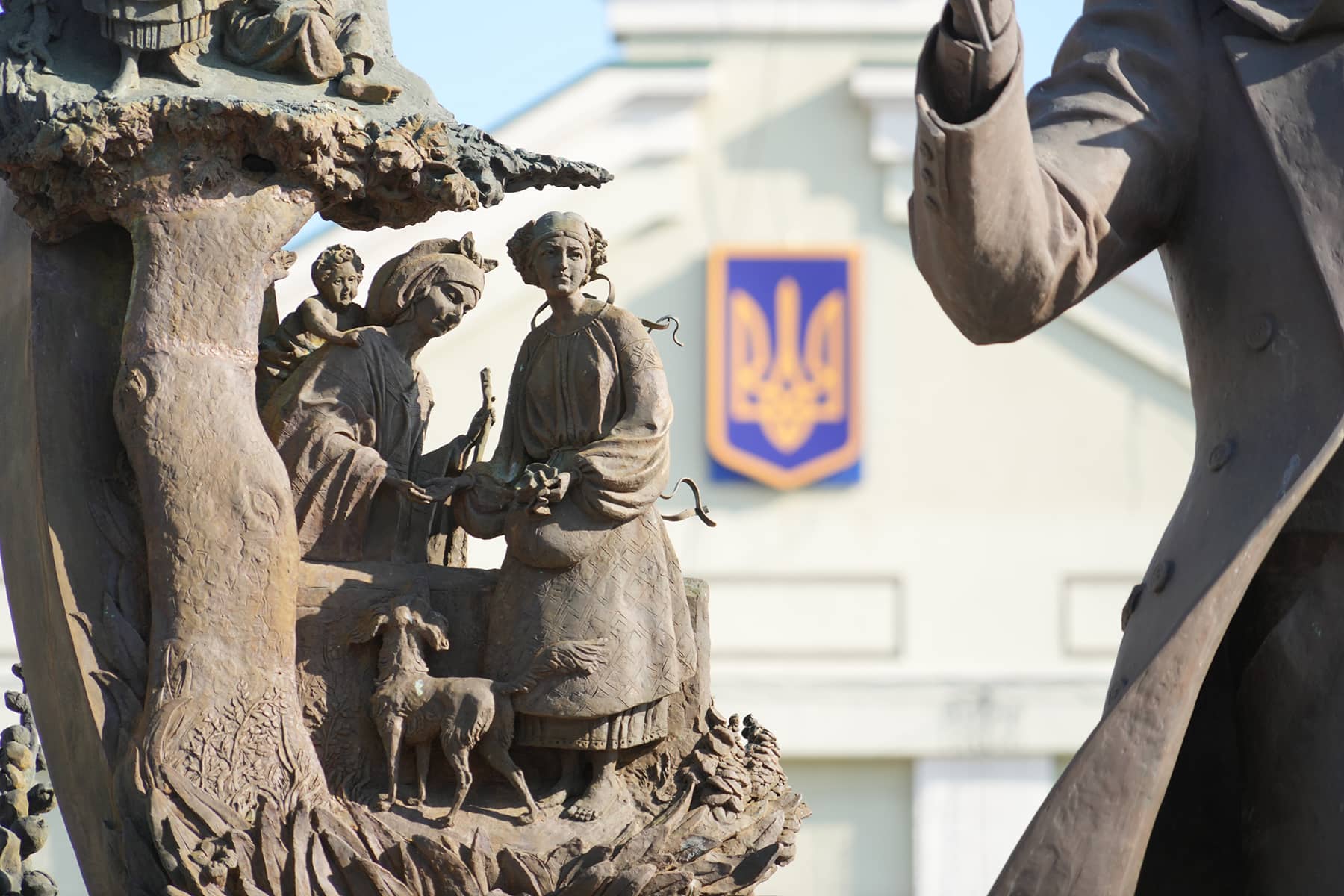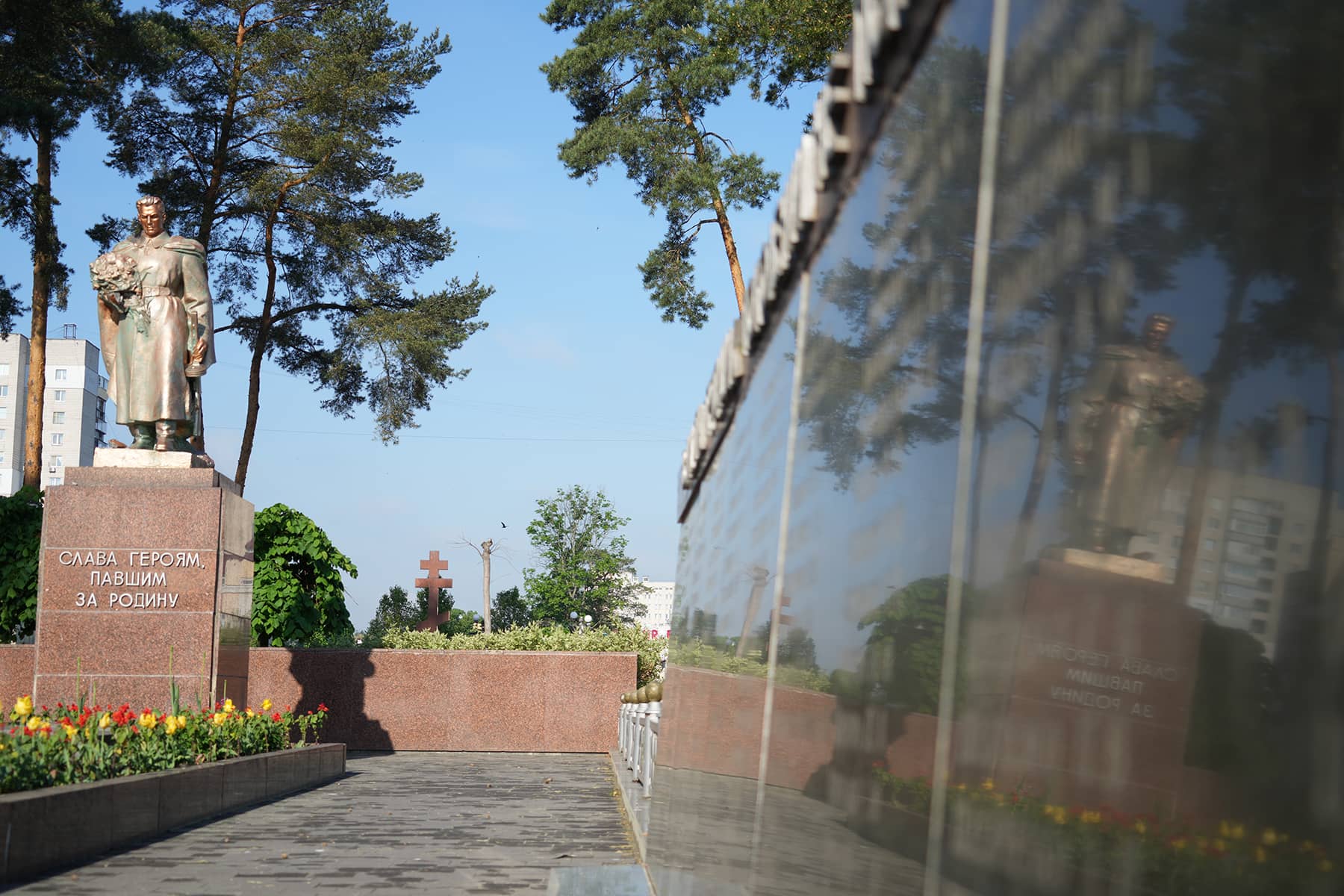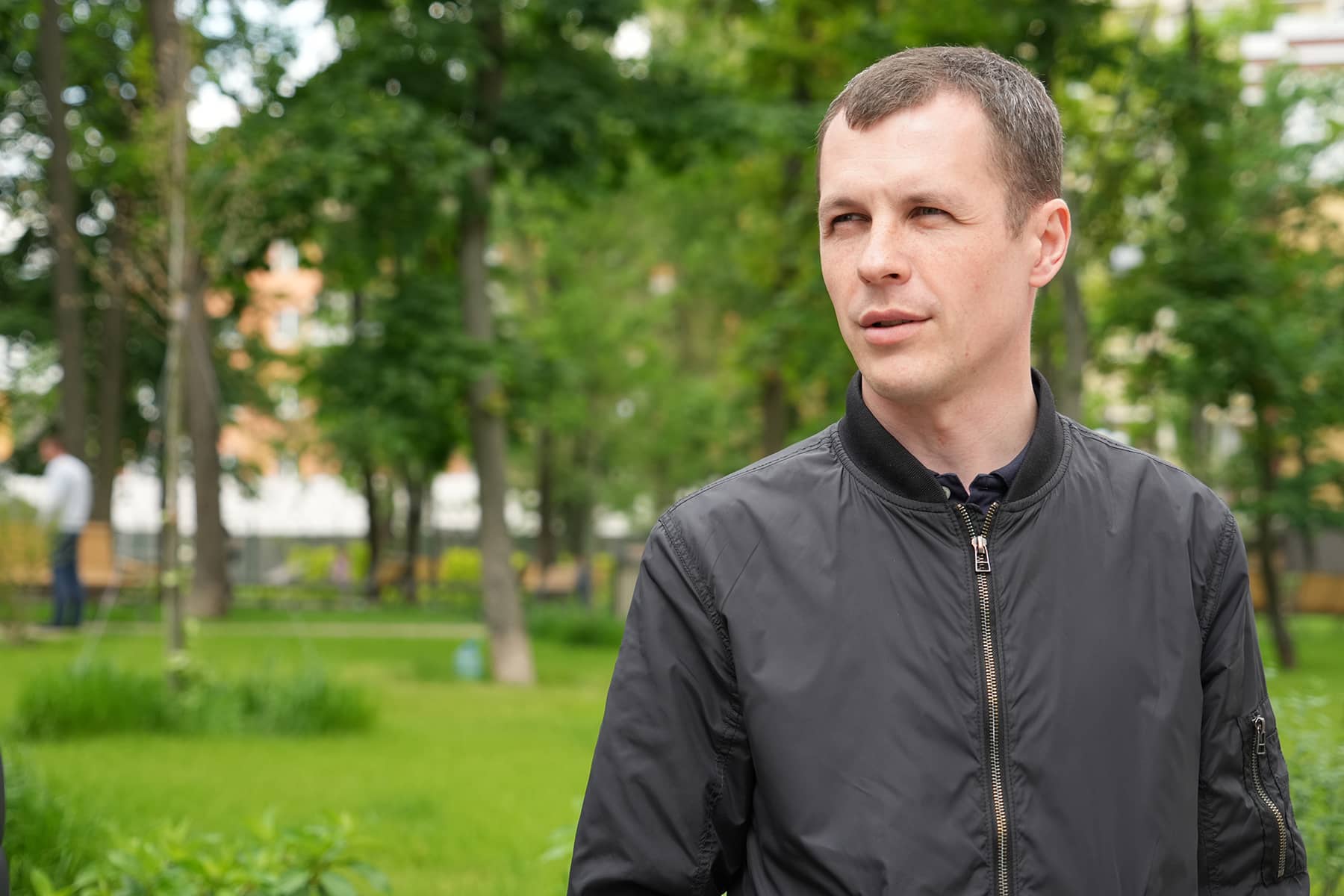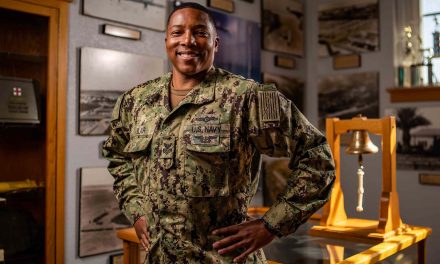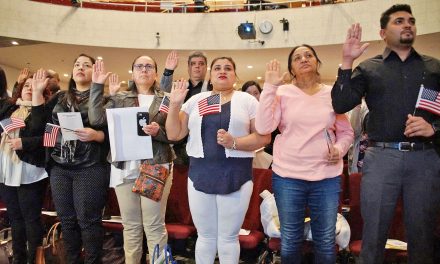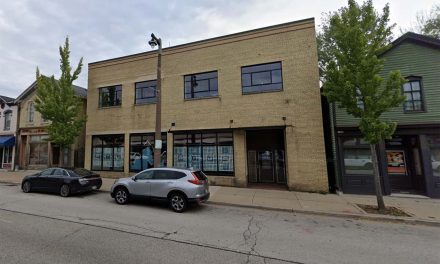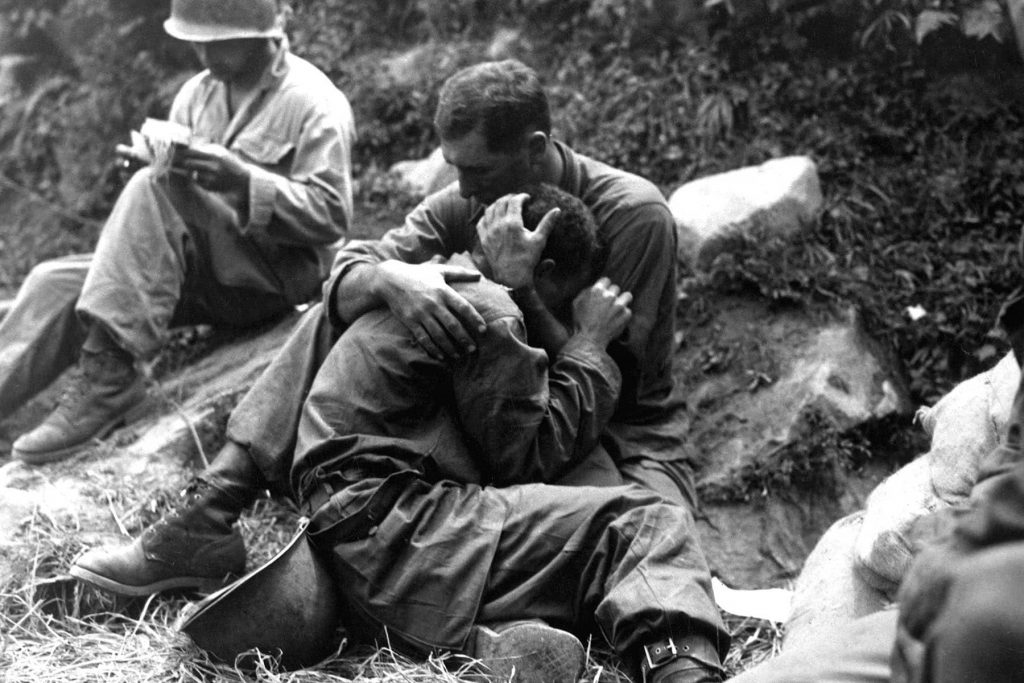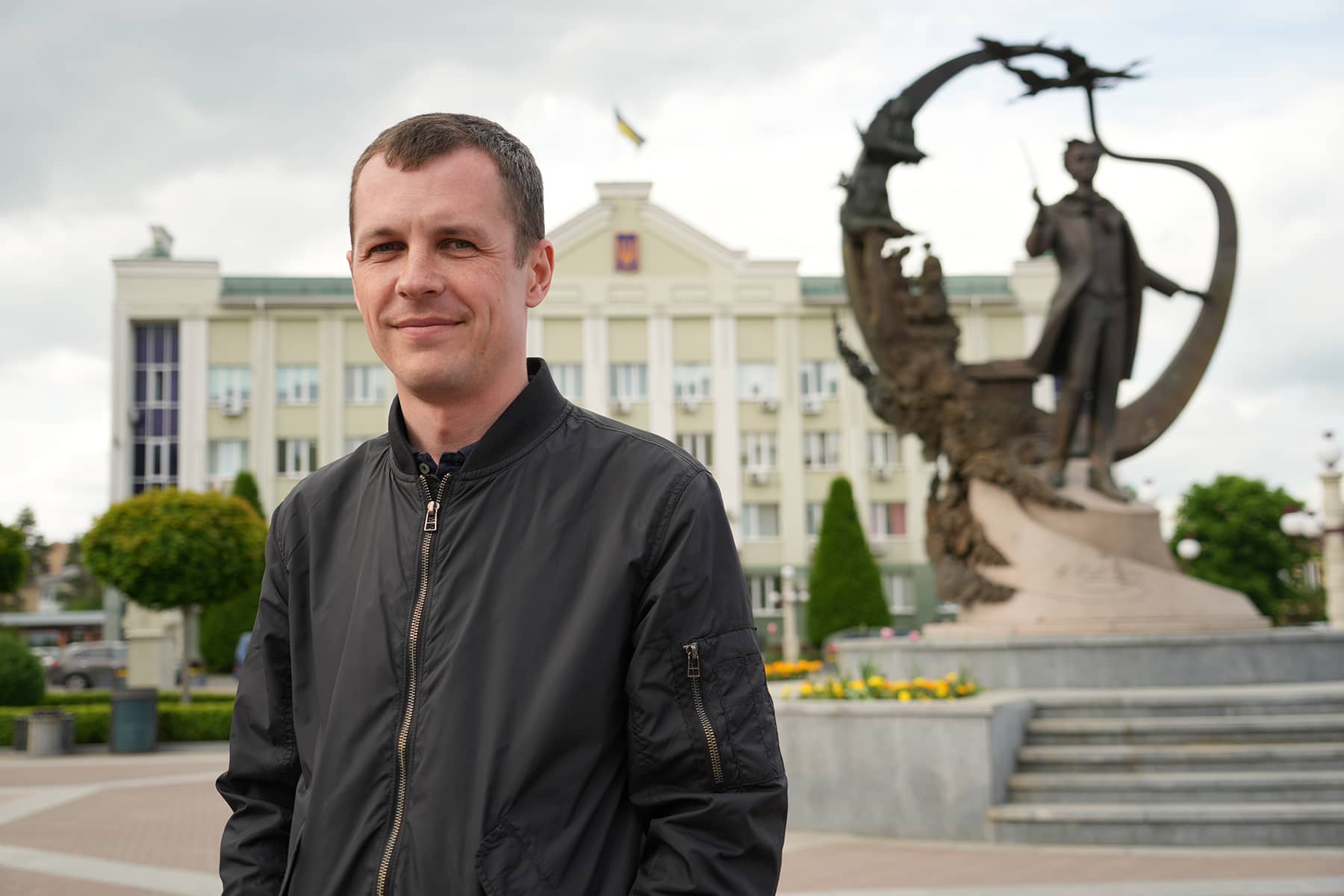
At five o’clock on the morning of February 24, Dmytro Negresha woke up to the loud sound of either an airplane or a rocket. By seven o’clock the Deputy Mayor of Irpin and Chief Clerk of the Executive Committee was already at work. All the city deputies had assembled with Mayor Oleksandr Markushin to discuss how to defend the city against the Russian invasion.
The city employees were given the option to leave and take their families to safety. No one was force to stay, no ultimatums were issued, everyone made their own choice. For those who were ready to mount a resistance, they received weapons at the military registration office on February 25.
“For me, there was not even a question about what I would decide. I knew that defending Irpin was something I had to do, it was that simple,” said Negresha. “My work quickly began, helping to establish a headquarters and gather volunteers. We had a municipal guard at the city council, so they began to train volunteers. Anyone who wanted to defend the city of Irpin was shown how to use a weapon.”
Negresha assisted in setting up checkpoints, and started patrolling the city. He acted as reconnaissance to locate enemy positions. From February 28 to March 5, there was active fighting in parts of Hostomel and Bucha.
“Unfortunately, the defense of Bucha failed and Russian troops reached us. We understood that we had to hold the city to protect Kyiv. We could not allow them to pass Irpin, otherwise there was little to stop the invaders from reaching the Capital City,” said Negresha.
Negresha said that Irpin’s forces were vastly out matched. The Russians were heavily armed and had entered by tanks. But the Ukrainian Armed Forces supplemented Irpin’s Territorial Defense. The battalion’s bravery prevented the Russian troops from gaining a foothold in Irpin. That was how Negresha survived until March 26.
“At first I was engaged in patrolling and coordinating the units. At one location I put up a strong resistance against the Russian occupiers,” said Negresha. “At the same time, I continued to perform my civic duties as a manager of affairs. While the bureaucracy was reduced because of the war, I knew there were still many issues that needed to be resolved at the official level. Such efforts required city permits and seals.”
He said it was necessary to register volunteers, process inquiries from citizens, communicate with the local police, establish city infrastructure, and simply help people who had been displaced. The city’s administration continued to work during the fighting, but the location of the office was changed for security reason.
“From the second day of the war, we organized a hotline for residents. The main question was how to evacuate safely. A lot of people left. Of Irpin’s 60,000 population, about 3,000 had remained in the city by March. Those people mainly required food and basic medical care,” said Negresha.
Everyone in the Mayor’s office was driven by the same goal, to expel the occupation forces, protect their homes, and to prevent the Russians from reaching from reaching Kyiv. Mayor Markushin was always with his staff. He never sat down or took a break, and Negresha felt that when people saw his commitment they were also motivated to join the fight.
“On March 6, I tried to take my wife out of Irpin and deliver her to a safe location,” said Negresha. “As we approached the checkpoint, I saw that I had been essential captured by Russian troops. I didn’t realize it. There was no way to turn around at that point, it was impossible. If my car suddenly turned sharply and left the column, the consequences could be very tragic. Then I saw cars on the roadside that had been all shot up. There were bodies near the destroyed vehicles and inside them. Some of the wounded people were still alive.”
There was a doctor traveling in the convoy along with Negresha. He approached the dying people to help, and save whoever was possible. But the Russians told him to get in his car unless he wanted to end up shot alongside them.
“We miraculously drove through the checkpoint. I think it was only thanks to my wife. If it weren’t for her, I wouldn’t be telling this story,” said Negresha. “At the checkpoint, soldiers confiscated our phones. It made my wife start crying. That seemed to distract the soldiers, who told us not to worry, we could move on after they checked us.”
Negresha took his wife to safety, returned to Irpin, and continued to defend the city. He said that everyone functioned as one team, and he credited that spirit due to his commander, Mayor Markushin.
“Mayor Markushin told us we had a single goal. He made sure we each understood that we were equal, no matter who had what position,” said Negresha. “In contrast, the Russian army did not seem to have a purpose other than to shoot and loot. They covered the whole city with a hail of bullets, but without any plan or military logic. They fired on houses, shops, schools – like it was some video game.”
When the Russian troops finally withdrew and Irpin was liberated, Negresha said that the hardest thing to get used to was the silence. Fighting the Russians had given everyone purpose. It was a distraction from how empty the city was, which seemed dead without families.
“I only heard dogs and cats after the Russians fled. It was odd, because I had gotten so used to the sounds of explosions. By knowing where rockets were hitting, I could determine where the enemy was. But with the sudden silence, there was an unknown threat,” said Negresha. “It was scary what could happen next, like anything could happen.”
Negresha lost a close friend during the invasion. When he looked back on those early days of the war, he still did not understand why the Russians came to fight and be killed on foreign soil. It served no purpose for them to die in Ukraine.
“What did we do to them? From whom do they want to liberate us? If they believed they were doing something for us, why were people fleeing from the occupied cities? How can they see everything that was happening around them with their own eyes, then continue to believe the false pictures and political propaganda on Russian TV?” said Negresha. “I don’t believe they had the ability understand anything. I get the impression that they were unable to think for themselves. Russians can’t have their own view or think independently from what they are told on TV. It was as if they were zombies who just crawled out of a cemetery’s ground.”
Even though Irpin had been liberated since the end of March, and Mayor Markushin had been making fast progress to restore the city’s infrastructure, Negresha said it was still too early for residents to return. However, people were coming home even though the local government was not ready. Mayor Markushin was doing all he could to provide public services while restoring communications and repairing infrastructure.
“So many homes were destroyed. We have been providing temporary housing, but long-term solutions to build new residential complexes takes time,” added Negresha. “We are trying to replace the essentials that our citizens lost. We are trying to welcome them home. Before the war, Irpin was very active. There was a large number of young people and many park places for recreation. I believe that the city will be like that again, and become even better.”
Series: Reports from Ukraine
- Reports from Ukraine: Traveling from Milwaukee to a country at war just to take a vacation from America
- Images from Ukraine: Latino artist travels to Irpin to paint mural inspired by "Echoes of Guernica"
- Images from Ukraine: Irpin residents welcome reissue of Russian Warship Stamp as latest sign of victory
- Stories from Ukraine: Wandering in the ruins of a shattered life after surviving Russia's invasion
- Images from Ukraine: Similar to the Alamo, martyred cities bought precious time to save a nation
- Stories from Ukraine: Tent camp offers shelter for displaced residents until Irpin can rebuild lost homes
- Images from Ukraine: Graveyards of Russian war machines show the scale of Putin's failure to seize Kyiv
- Images from Ukraine: Following the invasion convoy's 40-mile route and exploring an abandoned base
- Stories from Ukraine: Illegal weapons and proof of Russian War Crimes easily seen along streets of Irpin
- Images from Ukraine: How Irpin’s cemetery processed the staggering massacre of its local citizens
- Stories from Ukraine: Healing remains slow as Borodyanka residents recover from occupation
- Images from Ukraine: The deep scars of war remain visibly etched across the landscape of Borodyanka
- Interview with Oleksandr Markushin: Mayor of Irpin and the hero of a Hero City
- A Meeting of Sister Cities: Former and current Mayors of Irpin ask Milwaukee's business community for help
- Stories from Ukraine: Having a shared purpose helped Irpin's leaders protect the city and stop the invaders
- Stories from Ukraine: How Milwaukee helped a bakery feed hungry survivors in Bucha with fresh bread
- Stories from Ukraine: Bucha resident recalls how Russians turned neighborhood into a street of death
- Stories from Ukraine: How a mass grave of executions overshadowed accountability from Bucha’s leadership
- Images from Ukraine: Putin’s attack on Babyn Yar is a painful reminder of the broken vow of “Never Again”
- Images from Ukraine: An unexpected encounter with Jewish history and the bloody legacy of persecution
- Images from Ukraine: Listening to timeless voices of ethnic heritage etched in stone at Lychakiv Cemetery
- Images from Ukraine: The experience of attending a military funeral in Kyiv while children died in Uvalde
- Images from Ukraine: Stepping out of the fog of war to see the beauty of faith in ancient places of worship
- Images from Ukraine: The cities of Kyiv and Lviv were divided by history but remain united in identity
- Stories from Ukraine: Anya Nakonechna shares why the Lviv Opera is a symbol of her nation’s culture
- Images from Ukraine: A folk village where visitors can experience the life of past generations
- Images from Ukraine: Signs of renewal sprout from under Irpin’s rubble as city looks to the future
Lее Mаtz
Lее Mаtz
Translated from We all had the same idea to expel the occupiers, to protect our homes, and not let them get to Kyiv originally published on Public Administration Reform
Milwaukee Independent editorial team for this special series: (UKRAINE) Lee Matz, photojournalist; Oleh Pinta, translator / reporter; Yaroslav Zdyrko, security / videographer; (MILWAUKEE) Halyna Salapata, logistics / translations.
Milwaukee Independent has reported on the situation in Ukraine since it was invaded on February 24. Coverage originally began with reactions and rallies from the local Ukrainian American community, and relationships with Milwaukee’s sister city of Irpin. Through partnerships and good journalism, sources were developed that enabled Milwaukee Independent to publish developments about the unprovoked war in realtime. In late May, a team from Milwaukee Independent spent nearly two weeks on the ground in Ukraine. The award-winning daily news magazine was the first and, at the time, only media organization to send staff into the country since the war began.
Reports from Ukraine: An extensive news series by Milwaukee Independent from a country at war

